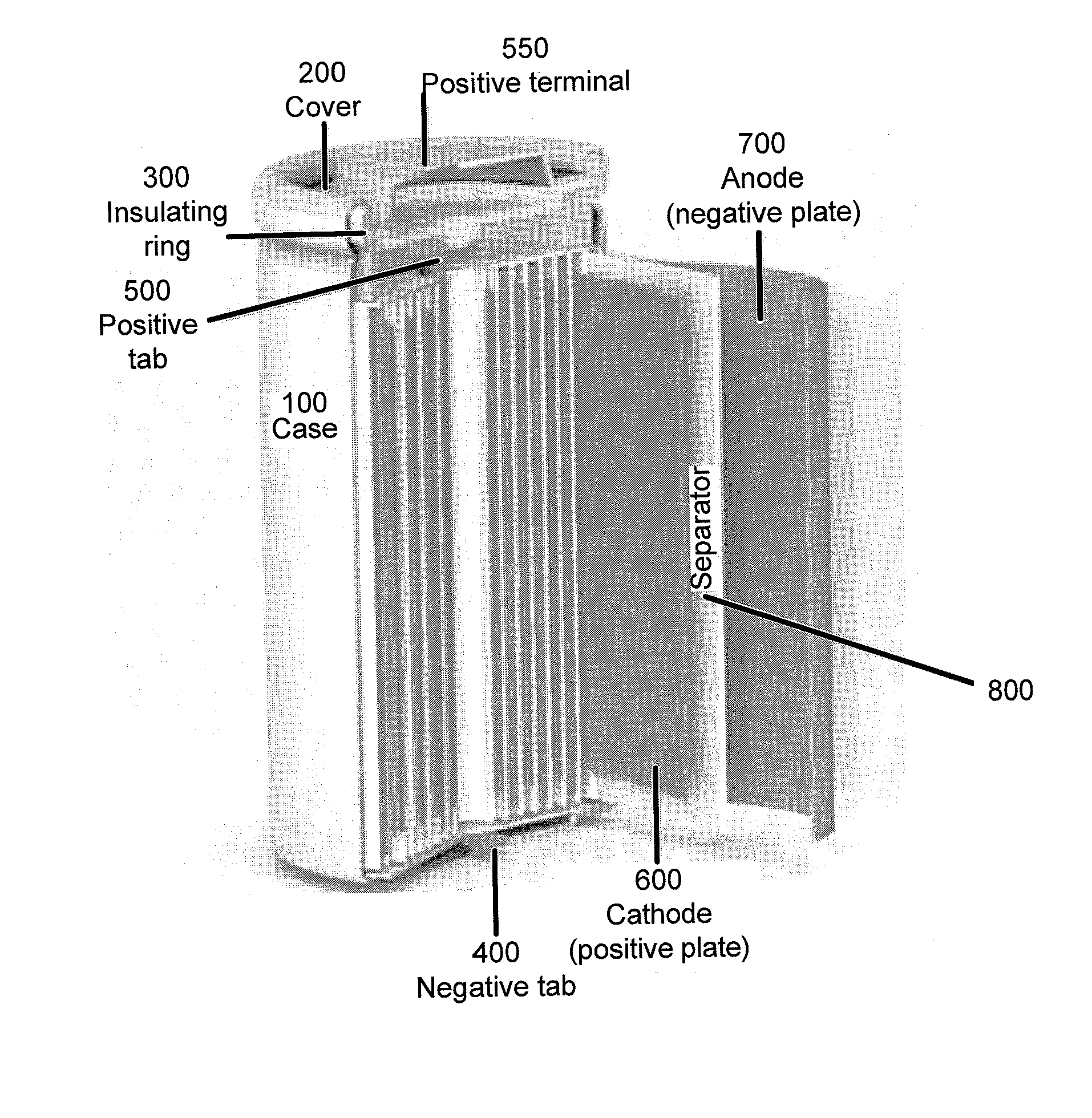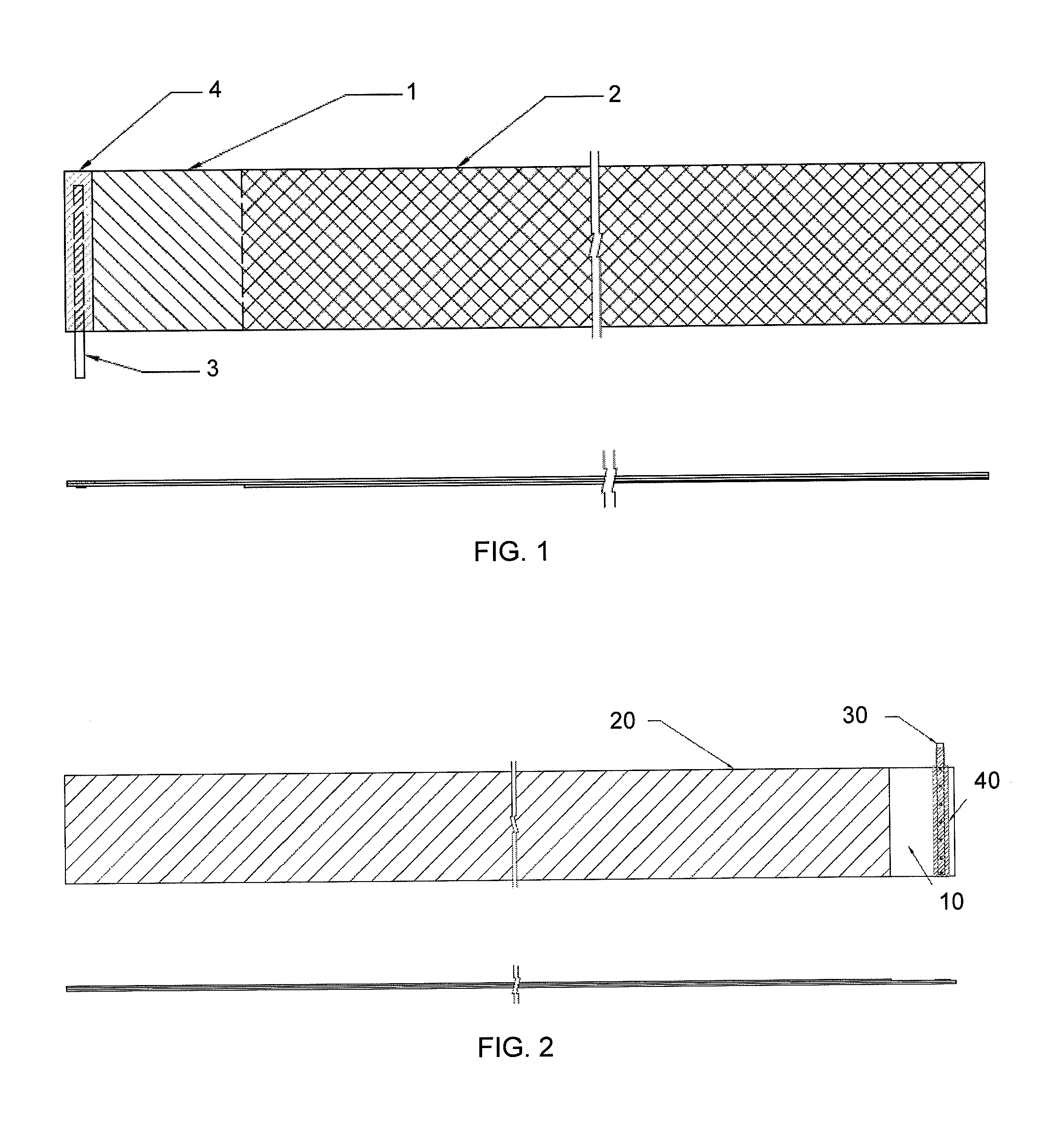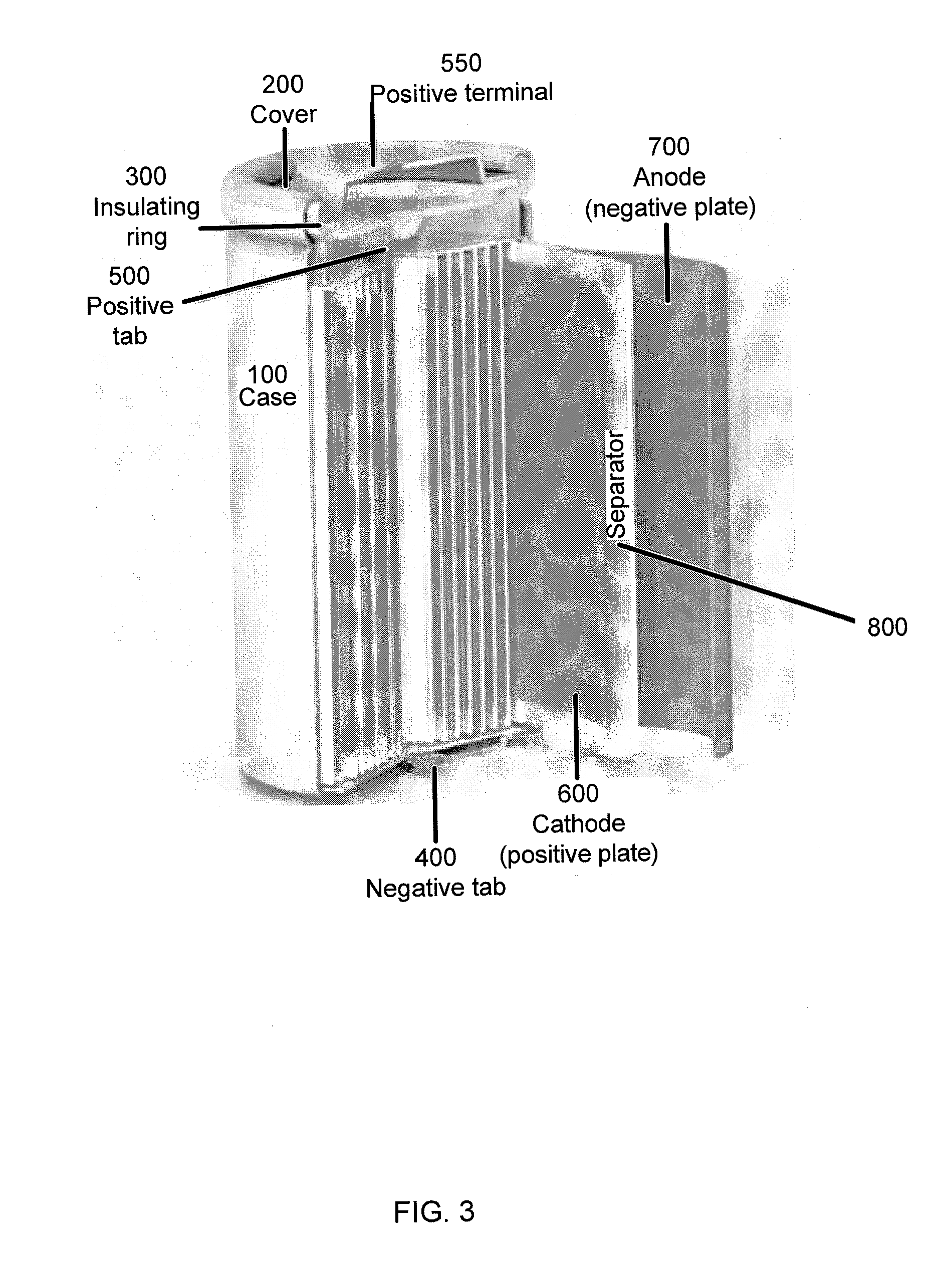High performance lithium or lithium ion cell
a lithium or lithium ion battery, high-performance technology, applied in the direction of non-aqueous electrolyte cells, cell components, electrochemical generators, etc., can solve the problems of shortening the battery life, affecting the performance of lithium or lithium ion batteries, and corroding metal collectors,
- Summary
- Abstract
- Description
- Claims
- Application Information
AI Technical Summary
Benefits of technology
Problems solved by technology
Method used
Image
Examples
example 1
[0119]1M solution of LiTFSI was prepared in a mixture of EC:DMC:EMC 1:1:1 weight ratio. The solvents and salts were pre-dried. The moisture level of the solution was below 50 ppm.
[0120]A sample of bare aluminum, aluminum coated with EB-012 conductive coating and EB-815 conductive coatings.
[0121]EB-815 was coated on aluminum foil using a reverse-roll comma coater. Aluminum Alloy 1235 / 1145-H18 of 18 μm thickness was used (manufactured by All Foils, Inc). The EB-815 conductive primer (manufactured by Henkel Corporation) was diluted by weight percent with NMP; 47% EB-815 and 53% NMP. The diluted mix was stirred for 3 hours before coating.
[0122]Coating speed was set at 7 meters per minute. Comma bar gap was set at 65 μm. Drying after coating was done in 3 consecutive zones of 6 foot length ovens. The ovens were set to 100° C., 120° C., and 150° C. After coating and in-process drying was completed, the foil was cured on the roll by heating inside an oven. The curing included 15 minutes at...
example 2
[0133]1M solution of LiTFSI was prepared in a mixture of EC:DMC:EMC 1:1:1 weight ratio as in Test Example 1. One percent of LiBOB was added to the electrolyte solution.
[0134]CV test shows that the corrosion of the bare aluminum was suppressed (FIG. 5: (A—Sweep 1; B—Sweep 2; C—Sweep 3). However, potential hold test shows that the corrosion of the bare aluminum started in about 60 hours from the beginning of the test (FIG. 6: (A—bare A1; B—EB-012 coating; C—EB-815 coating). The corrosion of the protected samples did not occur with the whole duration of the test (one week). This surprising finding shows that synergetic effect of using the protective coating and the corrosion inhibiting additive allows reduction or prevention of corrosion of the current collector corrosion.
[0135]Absence on corrosion at 60° C. potential hold test described in this example translates into months and years of corrosion-free storage of the of battery at lower temperatures utilizing this protective, conducti...
example 3
[0136]0.95M solution of LiTFSI was prepared in a mixture of EC:DMC:EMC 1:1:1 weight ratio as in Test Example 1. 0.05M of LiPF6 was added to the electrolyte solution.
[0137]CV test shows that the corrosion of the bare aluminum was suppressed (FIG. 7: (A—Sweep 1; B—Sweep 2; C—Sweep 3). Potential hold test shows that the corrosion of the bare aluminum started almost immediately (FIG. 8: A—bare A1; B—EB-012; C—EB-815). The corrosion of the sample coated with EB-012 conductive coating was slower, while the corrosion of sample coated with EB-815 was delayed significantly. This example demonstrates that some corrosion inhibiting additives are preferred to other: the LiBOB additive uses in Test Example 2 is more effective than LiPF6 additive shown in Test Example 3. It also demonstrates that some protective, conductive coatings are preferred to others. In this case, EB-815 protects aluminum more effectively than EB-012.
PUM
 Login to View More
Login to View More Abstract
Description
Claims
Application Information
 Login to View More
Login to View More - R&D
- Intellectual Property
- Life Sciences
- Materials
- Tech Scout
- Unparalleled Data Quality
- Higher Quality Content
- 60% Fewer Hallucinations
Browse by: Latest US Patents, China's latest patents, Technical Efficacy Thesaurus, Application Domain, Technology Topic, Popular Technical Reports.
© 2025 PatSnap. All rights reserved.Legal|Privacy policy|Modern Slavery Act Transparency Statement|Sitemap|About US| Contact US: help@patsnap.com



